USA Taxation: Top Mistakes to Avoid During Filing Season
Published on: January 9, 2025

Tax season in the United States can be a stressful time for individuals and businesses alike. The complexity of the tax code and the constant updates to regulations make it easy to make mistakes, which can lead to penalties, delays, or even audits. By understanding common pitfalls and how to avoid them, you can ensure a smoother filing experience.
1. Missing Important Deadline
Key Filing Deadlines:
- April 15: This is the standard deadline for filing individual tax returns (Form 1040).
- October 15: If you file for an extension, this is the final deadline to submit your return.
- Quarterly Estimated Taxes: Deadlines for self-employed individuals and businesses (January 15, April 15, June 15, September 15).
Common Issues:
- Late Filing:Missing the filing deadline without an extension can result in a penalty of 5% of the unpaid taxes per month, up to a maximum of 25%.
- Late Payments:Even if you file on time, failure to pay the taxes owed results in a penalty of 5% per month on the unpaid amount.
Tips to Avoid:
- Mark key deadlines on your calendar and set reminders.
- File for an extension(Form 4868) if you anticipate delays, but remember that the extension only applies to filing, not payment.
- Work with a tax professional to ensure timely submission.
2. Incorrectly Claiming Deductions
Common Deduction Errors:
- Overestimating Expenses:Claiming personal expenses as business deductions can raise red flags with the IRS.
- Missing Eligible Deductions:Many taxpayers forget to claim deductions such as:
- Home office expenses(if self-employed).
- Student loan interest
- State and local taxes (SALT), up to $10,000.
- Improper Documentation:Failing to keep receipts or other records to substantiate deductions.
Tips to Avoid:
- Understand the rules for deductions you’re claiming. For example, a home office must be used exclusivelyfor business purposes.
- Use tax software or consult a professional to ensure accuracy.
- Maintain detailed records for at least three years, as required by the IRS.
3. Overlooking IRS Updates
Tax Code Changes:
The IRS frequently updates tax laws, and failing to keep up with changes can result in errors. Examples include:
- Adjustments to tax brackets and standard deduction amounts.
- New credits or deductions, such as energy-efficient home improvement credits.
- Changes in eligibility for credits like the Earned Income Tax Credit (EITC)or Child Tax Credit.
Common Issues:
- Using outdated forms or software.
- Incorrectly calculating taxes due to old tax rate tables.
- Missing out on benefits or deductions introduced in the latest tax year.
Tips to Avoid:
- Visit the IRS websiteregularly or subscribe to their updates.
- Ensure your tax preparation software is updated.
- Enroll in tax training or consult a professional to stay informed.
Additional Tips for a Smooth Tax Filing Experience
- Double-Check Your Information:
Errors in Social Security numbers, bank account details for refunds, or dependent information can delay processing. - E-File When Possible:
Filing electronically reduces the chances of errors and speeds up refund processing. - Plan for Tax Payments:
If you owe taxes, set up a payment plan with the IRS if you can’t pay in full to avoid further penalties. - Seek Professional Assistance:
Tax professionals can help you navigate complex situations, such as self-employment income, multiple state filings, or investments.
Why It’s Important to Avoid Mistakes
Filing taxes correctly isn’t just about compliance; it’s about maximizing your financial benefits. Errors can lead to audits, delays in refunds, and unnecessary stress. By staying organized and informed, you can file with confidence and peace of mind.
Join Our USA Taxation Training Program
At the Institute of Corporate Training, we offer expert-led courses designed to help you master the intricacies of USA taxation. Learn how to:
- Avoid common mistakes.
- Claim every eligible credit and deduction.
- Stay up-to-date with the latest tax laws.

Categories
Recent Posts
-
How to Register for GST, PST, and NTN in Pakistan: A Beginner's Guide
-
How to Register for GST, PST, and NTN in Pakistan: A Beginner's Guide
-
Income Tax Filing and Refund Course: Become an FBR-Certified Tax Expert
-
Protecting Your Brand: Trademark Registration Process in Pakistan
-
Company Registration and Incorporation in Pakistan: Everything You Need to Know
-
How to Apply for an ITIN, EIN, and Trademark Registration in the USA
-
Monthly GST Return Filing in Pakistan: Deadlines, Process, and Tips
-
Complete Guide to Income Tax Return Filing in Pakistan: Step-by-Step Process
-
Start Your Career as a Tax Consultant
-
Tax Planning for Freelancers in Pakistan: A Complete Guide
-
Understanding Pakistan’s Taxation System: A Guide for Small Businesses
-
Tax Return Filing Courses in Lahore, Karachi, Islamabad
-
US Company Formation and Tax Filing: Federal vs. State Requirements
-
Excise Tax Registration and Return Filing in the UAE: Simplified Process
-
Understanding Transfer Pricing and Tax Audits in the UAE: Key Insights
-
How to Avoid Common Mistakes in Income Tax Return Filing in Pakistan
-
VAT Registration and Corporate Tax Services in the UAE: A Comprehensive Guide
-
How the UAE’s Corporate Tax Impacts Multinational Companies
-
Why Intellectual Property Protection is Crucial for Businesses in Pakistan
-
USA Taxation 101: Key Changes for the Upcoming Tax Season
-
Monthly GST Return Filing in Pakistan: Compliance Guide to Avoid Penalties
-
Monthly GST Return Filing in Pakistan: Deadlines, Process, and Tips

